How Buhari’s successor can rescue Nigeria in 2023 —Yusuf, Ex-LCCI boss
[ad_1]
In view of the various economic ailments that gripped the country in 2022, immediate past president of the Lagos Chambers of Commerce and Industry (LCCI) and current Director of the Centre for the Promotion of Private Enterprise (CPPE), Dr Muda Yusuf, in this interview with IMOLEAYO OYEDEYI, examines what lies ahead of the country in the New Year and the needed economic reforms expected of President Muhammadu Buhari’s successor.
With the way the Nigerian economy panned out in 2022, what do you see ahead of the country in 2023?
Well, the economy in 2023 will be very challenging, because whoever takes over must be ready to inherit a good number of legacy challenges. First is the huge debt burden as, even up till the last minute, the present administration is still accumulating debt. As of September, the debt figure was over N44trillion. Now the government is talking about converting the will and means of finance into bonds, because it is also part of the government’s debt. It is now about N22trillion. If you add that to 44, you are looking at something close to N66trillion. And from the records that we have seen, our debt servicing is almost consuming the revenue, because debt service to revenue is close to 100 per cent now. So, the fiscal space is in a very bad shape. That means, whoever is coming must come with a solution on how to deal with the challenges in our fiscal operations.
Two things must happen and they are the two legs of what we call fiscal consolidation. We must look at cost reduction and revenue optimisation. So we need reforms to reduce costs. There are already quite a number of options on the table, which the current government has not been able to push through. Then, there are also proposals on how to improve revenue. So, these two things will have to be looked into towards fiscal consolidation, because we cannot continue on this trajectory where almost the totality of the annual budget is now being funded by borrowing, because debt service has almost offset the revenue.
So, what are your expectations?
We expect that whoever comes in after the present president will look at some critical and urgent reforms that need to take place in order to reset the economy. The first is the foreign exchange policy reform. This is because our foreign exchange environment is in a shambles as it is creating a whole lot of crisis for investors in the economy, such that foreign investors cannot take their money out. Airlines can also not take their money out. As such, more investors are not willing to come to Nigeria, because if they do, how will they go out? So, that has created a major crisis in foreign exchange supply. It has also created a major reputational problem for the country. So the foreign exchange policy environment needs to be urgently reformed within the first three months of any administration that comes after this one. And this is not a new suggestion, because the International Monetary Fund (IMF) has been saying it. The World Bank and some of us too have been talking about it. But the status quo has remained. And in truth, we cannot continue with a foreign exchange policy which creates a paradise for currency brokers, and that is why they are the ones smiling to the banks now. They take money at the official rate and then sell at the parallel market rate. And they make a return on investment that nobody doing legitimate business in this economy is making. So the foreign exchange environment is very key to restoring confidence of investors, eliminating corruption in the foreign exchange market, removing the multiple exchange rate and to encouraging more inflow of foreign exchange into the economy.
The second major reform that needs to happen is the oil and gas sector reform. There are two levels in this: the downstream sector and the upstream sector. The downstream has been battered by all these subsidy problems. Crisis, fuel queues, corruption, lack of investment in refineries and all others are related and are parts of the policy and governance problems in the oil and gas sector. So, we need to urgently reform that sector, so that we can clean the space and create a level playing field as well as unlock the opportunities for investment in the sector. For the upstream reform, we need to deal with the issue of oil theft. Though some steps have been taken in this regard, we can do more. And then, we need a good kind of environment to attack investment in the sector. This is because all the key investors therein have divested from Nigeria. All the major multinational oil companies making the greatest impact as far as the global oil sector is concerned have all nearly exited Nigeria. So we need to create an environment in that sector through which we can get more investors. This will increase our output in order to invest in refineries, so that all these imports of petroleum can stop. And we should be able to export refined petroleum products, petro-chemical products and even fertilizers. All of these things are by-products of oil and gas. And exporting them will make a lot of impacts on our foreign exchange and create quality jobs four our teeming unemployed youths. So that is another leg of reform.
Then, we have the electricity sector reform. The parametisation that was issued with it is not bad. But the process, I think, is not tidy enough. So we cannot afford to abandon it. We should just improve on what is on ground. More importantly, we have to ensure that the pricing of electricity is right, because if this is not right, investment will not come in and those on ground will not be easy to sustain. So pricing is part of the reforms that need to happen in the electricity sector in 2023. This is because there is still a huge opportunity for investment as the energy deficit is very high. We need to reform that space to get better players. Some of the discos are not doing badly. It is just that some of them don’t have the needed capacity, but we can sort them out and create a better environment for the business to do better across the entire chain. You know we have the gas suppliers, the transmission lines, the distribution companies (Discos), and all others. So we need to strengthen that space, so that apart from the investment there, there will also be input in the economy capacity, because there will be enough power.
Then, the incoming government will need to deal with insecurity. This is because there is no way an economy can move forward if there is no security of lives and property. So for me, these are the key things that are urgent and need to happen immediately, though there are other issues such as sector control issues and regulatory issues. For instance, should we continue to tighten monetary policy the way we have been doing it? There is also the trade policy. How are we managing our international trade process? I mean the import/export sector. If you talk to all the players in that sector, what you will get will be a nightmare. And many of these things are human problems. They are problems we inflicted on ourselves. It has nothing to do with the COVID-19 pandemic or the Ukrainian war. Our economic problems are self-inflicted. But if we have discipline in governance, all these issues can be corrected.
In view of all the above, do you see any hope for Nigeria in 2023?
Of course, there is hope. But it is a function of doing the right things. I have just outlined the reforms that need to take place this year urgently. If we have the right person in place, such a person can then begin to tackle these reforms. And some of them are policy-related, while others are regulatory issues. Does it take time to change a policy? Of course, it doesn’t, because it is not like constructing the Niger Bridge. Within a month, you can change a policy. And then, we also need to ensure that we have the right economic team. I believe the biggest problem we have had over the last few years has been the problem of management. You know leadership is all about management and having to get the right people in the right places. The incoming president doesn’t need to be an expert in everything once he is capable of assembling the right team that will be appointed strictly on competence and not based on family, clannish or blood-relationship, which has pushed us to where we are today. If the incoming president has the political will to do this and stick to it unapologetically, things will really change for the better this year, most importantly when the president displays great commitment towards fighting corruption.
YOU SHOULD NOT MISS THESE HEADLINES FROM NIGERIAN TRIBUNE
PICTORIAL EXPLAINER: How To Identify Fake New Naira Notes
The Central Bank of Nigeria (CBN) has released security features to help identify fake new naira notes. According to CBN’s template, the Security features to look out for are the following…
Ondo Councils’ Workers Shut Down Assembly Over LG Autonomy
LOCAL government workers under the aegis of Nigeria Union of Local Government Employees (NULGE), Ondo, on Tuesday, stormed the State House of Assembly, threatening a showdown with the lawmakers over the signing of local government autonomy…
The Federal Government is putting the final touches to all necessary measures to stop cash withdrawal from federal, state, and local government accounts. The Director/Chief Executive Officer of the Nigerian Financial Intelligence Unit (NFIU), Modibbo Hamman Tukur, revealed…
The House of Representatives on Tuesday unveiled plans to investigate the allegation bothering on the alleged loss of over $2.4 billion in revenue accruing from the illegal sale of 48 million barrels of crude oil export from 2014 till date…
LEADING rights lawyer, Mr. Femi Falana, on Tuesday addressed the controversial move by the nation’s secret police to arrest and detain the embattled Governor of the Central Bank of Nigeria (CBN), Godwin Emefiele…
As a follow-up to its redesign of the N200, N500, and N1000 banknotes, the Central Bank of Nigeria (CBN) recently announced a new policy that mandates deposit money banks and other financial institutions to ensure that…
[ad_2]

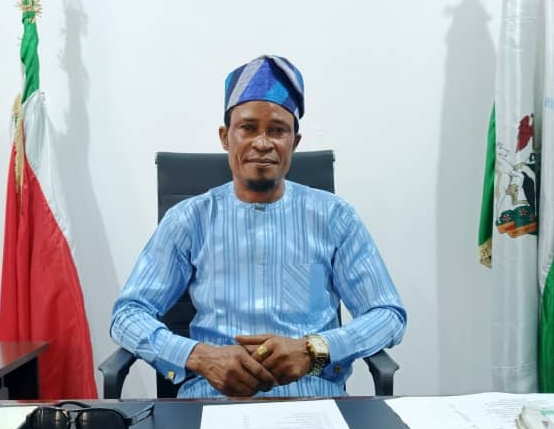
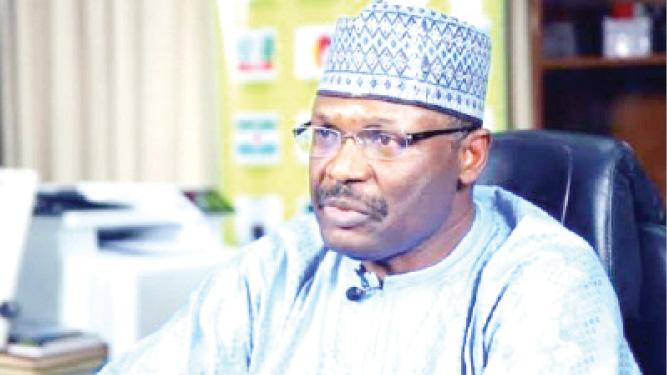

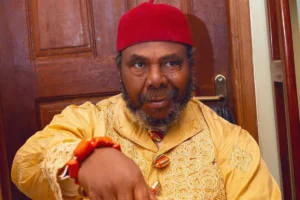
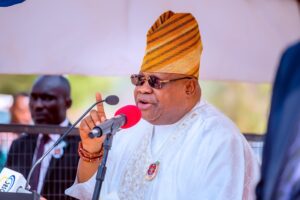
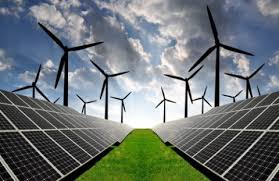
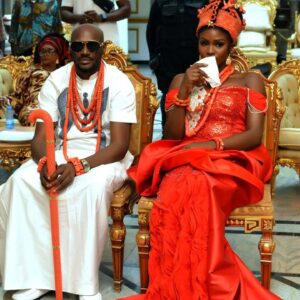


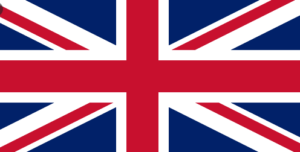


Post Comment